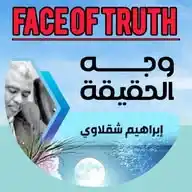
قناة وجه الحقيقة | Face of Truth 🌍
February 15, 2025 at 10:08 PM
The Face of Truth | Ibrahim Shiglawi
The African Union: Could New Leadership Turn the Page on Disappointment?
The results of the recent elections for the African Union Commission marked a turning point in the organization’s future and its role on the continent. Djibouti's Foreign Minister, Mahmoud Ali Youssouf, was elected as the Commission's Chairperson, while Algeria's Salma Malika Haddadi won the position of Deputy Chairperson. This signals a significant political shift, reflecting new balances within the continent. These changes come amid clear regional divisions and tensions over issues of sovereignty, security, democracy, and peace.
The election of Mahmoud Ali Youssouf, Djibouti's Foreign Minister since 2005, as the Commission's Chairperson is a notable development with political implications that extend beyond Africa. His election by a two-thirds majority reflects broad consensus among member states on the need for new leadership to bolster security and peace in Africa. Known for his diplomatic expertise and vision for promoting good governance and economic integration, Youssouf represents a move toward reforming the organization’s policies, steering away from favoritism or dependency that characterized the previous administration.
The elections witnessed intense competition between Youssouf and Kenyan Raila Odinga, a figure known for policies opposed to Sudan’s interests. Odinga's loss dealt a blow not only to Kenya but also to parties seeking to exploit the African Union for narrow agendas, such as supporting the Rapid Support Forces (RSF) militia. Countries like Algeria and Djibouti played pivotal roles in thwarting these attempts, reflecting the rise of an African bloc that rejects political blackmail and biased agendas.
For Sudan, these results carry special symbolism. Sudanese view the election of Djibouti and Algeria as a sign of hope for restoring their country's standing within the Union and ending a period of disappointment marked by the organization’s stances toward Sudan. This includes the suspension of Sudan’s membership and the failure to condemn regional parties that fueled a devastating war nearing its second year. These actions were associated with the tenure of Moussa Faki, whose leadership was marred by controversial decisions, such as granting Israel observer status and inviting Ukrainian President Zelensky to address the summit. Faki’s administration also consistently supported the RSF militia and its regional backers.
The new Chairperson, known for his balanced diplomatic approach, raises hopes for Sudan to regain its membership and see the condemnation of rebel militias and their regional supporters. His visit to Port Sudan in October 2024 and his meeting with General Abdel Fattah al-Burhan reflected his clear support for Sudanese sovereignty, describing the war as "imposed on Sudan." These statements, along with the Commission’s new direction, offer Sudan a chance to restore its regional standing and achieve official condemnation of the rebels.
As for Algeria, which secured the Deputy Chairperson position, it has consistently opposed foreign interference in African affairs. Its role, alongside South Africa, in opposing Israel’s observer status demonstrates a principled stance that reflects a new African approach to strengthening the Union’s independence. The election of Algeria and Djibouti reinforces an alliance expected to restore balance within the organization and reduce external influence seeking to manipulate the Union for limited political purposes.
These changes reflect the continent’s desire to free its decisions from external dominance, focusing instead on security and developmental issues. Hopes remain high that the new leadership will promote democracy, good governance, and support for countries facing economic and security crises.
Sudan played a significant role in the recent elections and shaping the scene through diplomatic efforts led by the Sudanese Sovereign Council, along with the Ministry of Foreign Affairs and security agencies. These efforts succeeded in neutralizing several countries that previously leaned toward opposing positions, showcasing Sudan’s ability to leverage its regional influence and African relations despite the challenges.
According to Al-Araby Al-Jadeed, Mahmoud Ali Youssouf announced his intention to enhance economic and social development across the continent. This direction opens doors to support Sudan in rebuilding its destroyed infrastructure and achieving economic stability. Under his leadership, the Union could also reinvigorate regional mediations to resolve armed conflicts through African solutions, away from regional and international influences.
In this context, the roadmap presented by the Sudanese government for the post-war phase included tangible steps, such as launching an inclusive national dialogue involving all political forces except the rebels and their supporters. It also called for forming an independent, technocratic government to manage the transitional period, amending the constitutional document, and requiring the rebels to evacuate civilian facilities and lift sieges on cities like El Fasher.
This roadmap has garnered support from several African countries, including Egypt, Algeria, South Africa, and Senegal, which have expressed their backing for Sudan’s efforts to restore security and stability. Observers expect the roadmap to receive full support from the new African Union leadership.
Reinstating Sudan’s membership in the African Union is not just a sovereign demand but also a strategic necessity to strengthen partnerships between Sudan and other African nations. Under the new leadership, there is renewed hope for the Union to become a genuine partner for Sudan in addressing its crises.
In light of these developments, as seen from the perspective of The Face of Truth, Sudanese citizens, who have shown broad support for the roadmap, hope these steps will resonate positively within the African Union. They also aspire for the new leadership to rebuild trust between Sudan and the organization, reflecting the aspirations of African peoples for sustainable security and a shared future, free from regional and international competition over the continent's resources.
May you remain well and in good health.
Sunday, February 16, 2025
[email protected]